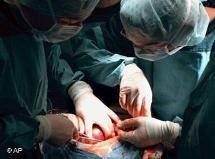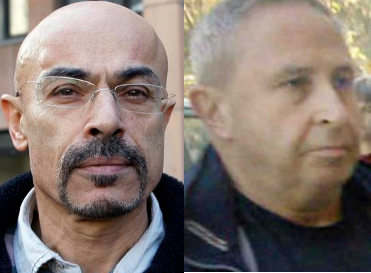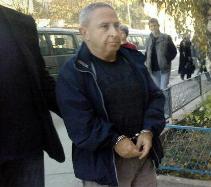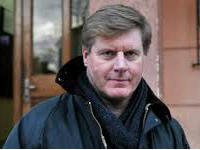Organ Smuggling: Turkish Hospitals Traffic Injured Syrian Citizens’ Organs
Were it not for the well-documented terrorism and atrocities that we know are being committed by Turkey’s Erdogan government in Syria, we might pass over as political fiction the hand-me-down news report (below) about injured Syrians being robbed of their organs when taken to Turkey’s public hospitals for treatment.
But in the context of Turkey’s role in supporting and arming the terrorists to overthrow the Assad government in Syria and its history with trafficking human organs, there’s reason enough to take the report seriously.
|
The Turkish public health sector has a history of operating in international human organ smuggling for money. In 2010 The Guardian reported the theft of human organs by Yusuf Ercin Sonmez, a Turkish surgeon who was sought by Interpol in an international manhunt at the time. Sonmez has been indicted for illegally taking human organs for sale from patients in Kosovo and accused of the same in Azerbaijian and of being involved in an organ theft ring in Ecuador. In Kosovo, Sonmez was indicted for taking organs from Serb soldiers, captured in the 1998-1999 US war on Serbia and leaving them to die. Linked to Hashim Thaci, the US-backed Prime Minister of Kosovo, Sonmez had been repeatedly arrested for these crimes in Turkey but later released. According to The Guardian:
Yilman Altun, 23, was the desperate young Turk who said he was promised a rich reward for his organ by a broker in Istanbul. Alongside him lay Bezalel Shafran, a 74-year-old Israeli who had paid £76,400 for the black-market kidney he hoped would prolong his life…
“According to an indictment released this week, the surgeon transferring the kidney between these strangers in the Medicus clinic in a deprived suburb near the Kosovan capital, Pristina, was Yusuf Ercin Sonmez, a 53-year-old medic…
“But it is Sonmez who prosecutors believe has been the central figure in the trafficking. The Turk has been repeatedly arrested for organ transplants in his native country, where colleagues describe him as an accomplished but rebellious surgeon. In 1998, Turkish TV, whose reporters posed as donors, found seven patients, mostly from Israel. Sonmez was later banned from working in Turkey’s public health sector…
“Since then he has been linked to clinics operating on donors and recipients from across the world. He has admitted to doing thousands of transplants, but says that his donors sign disclaimer forms declaring they are giving their organs for humanitarian purposes…
“Patients from Canada, Germany, Poland and Israel had received organ transplants at the clinic. But despite promises of payment of up to €20,000 ($33,000), the donors had left empty-handed.”
Arrested and Released
If the reports cited below sound confusing, perhaps some of the original publishers meant them to be so. Many of the news stories in western media tell only parts of the story, omit key elements or simply do not followup on the arrests. But when the reports by various news agencies are examined closely and integrated certain things become clear. For one, when the corporate media reports that a person has been “arrested” it doesn’t necessarily mean that he has been prosecuted or imprisoned or even detained.
Yusef Sonmez was working with Moshe Harel, an Israeli, at the time of his “surgical attacks” in Medicus, a medical clinic owned by Lutfi Dervishiin in Kosovo where Sonmez and other doctors worked. Sonmez was the primary surgeon and Moshe Harel was known as “the fixer” for the organ theft&sell ring, recruiting or finding ‘donors’ and recipients for organ removal and transplant by Sonmez and a few other surgeons working for them.
|
|
| Dr. Yusef Sonmez (L) and Moshe Harel |
In 2008, Moshe Harel was arrested in Pristina but fled Kosovo “after he was released from detention.” Subsequently, Kosovo authorities issued an international arrest warrant for both, Sonmez and Harel which stated that at least 30 illegal kidney removals and transplants were carried out in the Pristina clinic in 2008. The police raided Medicus that year “after a Turkish man collapsed at Pristina airport waiting for a flight back to Istanbul after having a kidney removed.” Haaretz later reported,
“In 2008 investigators closed down the private health clinic where the doctors worked as part of the initial investigation. Kosovo police launched a raid triggered by suspicions that a Turkish man had sold his kidney to an Israeli recipient after he appeared fatigued at Pristina airport trying to board a flight to Turkey.”
In November 12, 2010 Haaretz followed an AP report stating that Interpol had issued an arrest warrant for Harel and Sonmez adding, “Two other doctors, Israeli national Zaki Shapira and Turkish national Kenan Demirkol are identified in the 46-page document as unindicted co-conspirators.”
On December 20, 2010 Haaretz reported that Moshe Harel was “on the run” and:
“Moshe Harel, an Israeli of Turkish descent, is known as “the fixer” of the alleged organ ring, for his suspected role in matching potential donors recruited in Turkey with recipients, many if not all of whom had connections with Israel.”
On January 12, 2011 Yusef Sonmez appeared again in Turkey. The BBC reported that Somnez was “arrested and bailed,” (i.e. released on bail by Turkish authorities in Istanbul) adding “The [organ] donors, said to have come from Moldova, Kazakhstan, Russia and Turkey and to have lived in ‘extreme poverty or acute financial distress’, were allegedly transported to Pristina Airport.” It’s noteworthy that the BBC said 8 others were charged a year earlier but made no mention of Moshe Harel in their report.
CNN also reported that Yusef Sonmez was arrested in Istanbul on January 12, 2011 on the Interpol warrant but that “Sonmez was then released by the court pending trial.”
On February 10, 2011 the New York Times ran an article in defense of Sonmez (excerpts):
ISTANBUL — For a surgeon wanted by Interpol and suspected of harvesting human organs for an international black-market trafficking ring, Dr. Yusuf Sonmez was remarkably relaxed as he sipped Turkish red wine in a bustling kebab restaurant facing the wind-whipped Sea of Marmara.
“Dr. Sonmez, refreshed from a ski trip to Austria, spoke last month while on a break from business trips to Israel and operations on cancer patients here.
“He boasts about the results of his kidney transplant operations, more than 2,400 by his count. He keeps friends (and, incidentally, investigators) up to date on his life via a blog and Web site.
“And in his seaside villa on the Asian side of Istanbul, he treasures a framed copy of a signed letter in 2003 from the Ministry of Health in Israel commending him for his life-saving aid to “hundreds of Israeli patients who are suffering from kidney diseases and awaiting transplants’.
“Of his surgical skills, he added, wryly, “I am the best in the world as long as my fingers aren’t broken.
On May 25, 2012 Reuters reported that Moshe Harel was finally arrested in Israel on the Interpol warrant.
|
|
| Moshe Harel arrested in Israel but not detained. |
“Moshe Harel was arrested along with several other people in connection with a parallel investigation in Israel, said the mission, known as EULEX.
“Harel is a key suspect in a separate, but parallel, investigation regarding the Medicus indictment, filed in June 2011, charging him with the criminal offences of trafficking in persons and organized crime,”
Reuters said the indictment stated Harel is, “An Israeli citizen [involved] in ‘identifying, recruiting and transporting victims … ensuring the delivery of cash payments by electronic bank transfer” prior to surgery.”
“Police in Kosovo accuse Israeli Harel of seeking out people in need of kidney transplants and luring donors to Kosovo from Turkey and the poorer countries of the former Soviet Union with the promise of 15,000 euros ($20,000) in payment. It is not known whether they received the money. The organs were then sold on for between 80,000 and 100,000 euros ($100,000-$125,000)
On the same day, AFP reported:
Also on May 25, 2012 Press TV, reported on the story of Somnez & Harel and discussed broader findings of organ trafficking in Israel:
“Pristina – The suspected mastermind behind an organ trafficking network, sought for years by Kosovo authorities, has been arrested in Israel an EU prosecutor said on Thursday. ‘We have received information that Moshe Harel has been arrested in Israel on organ trafficking and other related offences,’ EU special prosecutor Jonathan Ratel said. ‘We are seeking confirmation with the Israeli authorities,’ he added.”
“Reports earlier this week by Ha’aretz, indicate that at least 10 Israeli citizens were arrested for being members of an organ trafficking gang. The Italian New Generation Foundation for Human Rights and the Everyone Group has presented evidence indicating that Sinai locals harvest the organs of the people they transfer to Israel. In this connection, a number of mass graves have been found containing the corpses of Africans missing some of their organs.”
The Trial
|
|
| Jonathan Ratel, EU’s Special Prosecutor in Kosovo |
The trial in Kosovo took place in April, 2013, 5 years after the organ trafficking crimes were committed in Kosovo. Jonathan Ratel is a Canadian lawyer who serves as head of the European Union’s Special Prosecution Office in Kosovo. He began his investigation in March 2010 and the trial began in September 2011 before three international judges. Ratel pieced together the complex case covering countries that ran through Kosovo, Turkey, Europe, Canada, US and Israel. The trial included testimony from 80 witnesses and Ratel’s closing arguments included 250 PowerPoint slides and lasted six-and-a-half hours.
On April 19, 2013 The Star (Canada) conducted a telephone interview with Ratel when he called this dark web of trafficking human organs, “the cruel harvest of the poor” and added, “The single motivating factor behind this enterprise was the opportunity for obscene profits available in the black market organ trade.”
On April 29, 2013 the New York Times published this:
|
On the Lam
On April 29, 2013, The Star stated that Dr. Yusuf Sonmez and Moshe Harel, “remain at large, wanted under an Interpol ‘Red Notice’.”
On August 10, 2013, Friends of Kosovo reported, “Two foreign suspects in the case – Turkish doctor Yusuf Sonmez and Moshe Harel, an Israeli citizen – are still listed as wanted by Interpol but remain at large.”
December 16, 2013 – According to Balkan Transitional Justice, defendants Sonmez and Harel cannot be tried in their absence and their prosecution depends on their extradition:
|
Where have these two cretins gone? Where have they been in hiding and who is hiding them – since the time they walked from prosecution in Kosovo? Are either or both being given secret asylum in Israel as in the past? Are they continuing their ghoulish work in Turkey, protected by the Erdogan government, robbing organs from injured Syrian civilian and military who’ve been sent there for treatment and from Syrian soldiers who have been captured by the terrorists? The latter would certainly fit with their work in Kosovo where they robbed captured Serb soldiers of their organs before Kosovo’s “freedom fighters” killed them. The following report from Fars News Agency tells of how the organ theft business is thriving in Turkey.
| February 5, 2014 Fars News Agency Turkish Hospitals Traffick Injured Syrian Citizens’ OrgansAccording to a report by the Lebanese al-Safir daily, trafficking the injured Syrian people’s body organs is a phenomenon which has intensified in Turkish governmental hospitals.Ahmad Abdulkarim Muhammad, a 19-year-old young Syrian, is one of the victims of this phenomenon. He was injured in Syria in January and was transferred to Antakya hospital in Southern Turkey and died after a few days. Despite being transferred to the hospital for head injuries, a video released after his death shows that his abdomen has gone under surgery operations which indicates stealing of his vital organs, including kidneys, liver, etc. Earlier reports also said that Turkish authorities are engaged in trafficking body organs of injured Syrians that are taken to Turkey for treatment. The Lebanese newspaper al-Diyar reported in May, 2013 that Turkish authorities transfer young injured Syrians to certain hospitals in the Turkish cities of Antakya and Iskenderun. The report added that the Turks leave the injured Syrians alone to die after their body organs are removed in the hospitals. The dead are later sent to the Syrian border region to be buried. Turkish doctors have confirmed that out of 62,000 injured Syrian civilian and military people who were transported into Turkey, body organs of over 15,600 of them were excised and their bodies were sent back into Syria to be buried, al-Diyar stated. Turkish officials have made no comments over the issue so far. The Lebanese newspaper also states that the body organs, including livers, kidneys and hearts are given to people waiting for treatment in Turkey. Al-Diyar said European scientific websites acknowledged that body organ transplantation operations had increased in Turkey over the past two years, since the beginning of the crisis in Syria. |





